By Clarice McKenney
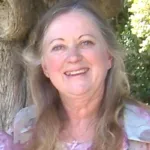
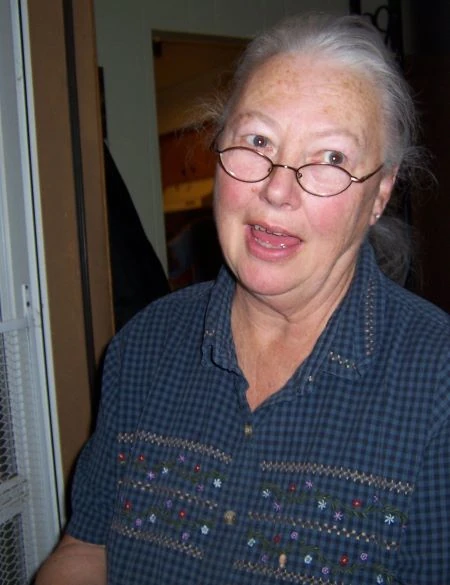
My first acquaintance when I moved to far-north Boundary County, Idaho was Barb Brown, and through the quarter of a century as next-door neighbors, we became the dearest of friends.
Our first conversation came on a spring day when we were gardening on either side of our fence, and she looked over and said, “Gardening is the best therapy.” Barb told me that day how gardening had helped her deal with a loss no parent should experience.
In the years that followed, slowly Barb shared her loss of eight-year-old Lisa. As she spoke about sending Lisa down to the lake from their campsite to let her dad and brothers know that lunch was ready, I was chilled thinking how many times I had done something similar and how narrowly my own family may have escaped what had happened to the Browns.
When my daughter was in elementary school and my son was in daycare while I was working at the Hanford Nuclear Reservation, we were unaware that a sinister figure also was living in our small community of Richland, Washington. Years after I moved to Portland, Oregon, this monster was finally caught with a little boy in a theater across the Columbia River near Vancouver. Fortunately, the boy was unharmed, but eventually, Leslie Allen Doud was executed for the deaths of several boys in our former town.
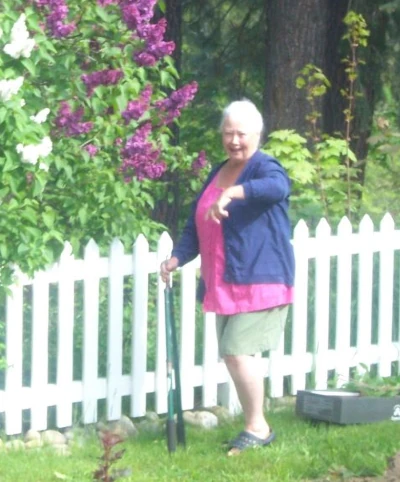
There had never been justice for Barb’s Lisa, though. Barb’s faith was that one day she would be with her daughter again. In the intervening years between her unimaginable loss and her own too-early death, Barb’s pride and joy were her daughter-in-law Jen, granddaughter Rachel and great granddaughter Bailey.
On what turned out to be our last day together, Barb told me in detail how her little girl had vanished. Months later, when they finally located Lisa’s remains, there was no evidence to charge the suspect that Barb was certain was guilty. DNA testing was unavailable all of those years, and there had been years of agonizingly tedious pursuits of the criminal who took Lisa’s life.
After years of disappointing communications with local and state representatives from her political party, which was my own party, she explained, the helpful responses from her new party convinced her never to vote for mine again.
Over the years, Barb had channeled her agonies into starting a local group of people who were grieving the loss of family members. Our last day together, I asked her how she had become such a model of courageous persistence, especially given the circumstances stacked against her in the fight seeking justice for Lisa.
That’s when she explained the resolve that had saved her from life-threatening bitterness. Barb told me that she came to see that the monster who murdered Lisa was not worth her hatred nor the toll it would take on her own life, and she miraculously let it go. “The best therapy of all,” I told her, thinking back to our first conversation.
In our neck of the woods, we all spend winters somewhat isolated, but come spring, we’re out in our yards and greet one another with the relief that comes from surviving extreme cold, heavy winds and icy driving. Through what became a quarter of a century of shared summers, Barb and I helped with one another’s gardens and shared our flowers, vegetables and fruit. Whenever Barb tired of a shrub, she would call me to see if I wanted it. Since I had started with absolutely no landscaping or gardens, her generosity thrilled me every time.
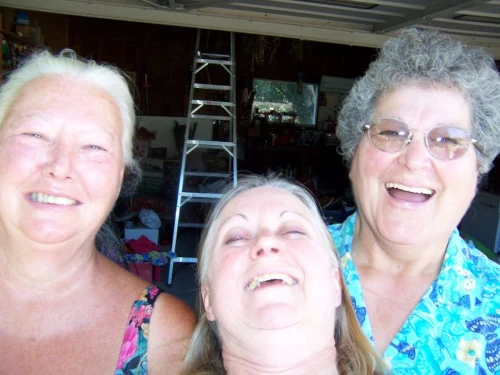
At the end of one summer, Barb gave me a geranium her son, Rich, had given her. I returned it after caring for it all winter in my sunny entry. But she told me to keep it. So began one of our traditions: she would enjoy each new geranium’s first summer, and I would benefit for the rest of each plant’s life. She often commented on how much she enjoyed seeing the old potted geraniums she had passed along surrounding my door every summer.
Another tradition was that every Christmas, her husband, Dick, would bring me an amaryllis and I would give the Browns a big chunk of my favorite homemade cheesecake. It was always topped with home-canned huckleberry sauce. For years, Barb and Dick gathered them high in the mountains, and each summer I would talk someone into going with me to do the same. Once Barb and I both had taken too many falls, I made the topping from frozen huckleberries that her grandsons picked.
Little by little, since I’m no Master Gardener, my gardens became more and more beautiful, and as we went from spring to late spring, early summer to late summer, I had fun crafting bouquets from each new batch of flowers. Originally, I gave them to Barb sort of sheepishly because she still was growing massive blooms herself. No matter, she always loved the bouquets I gave her and usually called to brag about how long she had kept them fresh. Eventually, she taught me how to slit the stems from the bottom, sometimes crushing those stems, and adding sugar to the water.
At some point, Barb began collecting and displaying silk flowers that were amazingly lifelike. It always cracked her up when I came over to admire a new plant and smell what turned out to be artificial blooms.
One summer after a particularly gorgeous set of gardens on my side of our fence, I told her I was frustrated. “I work my garden gloves off, but my visitors hardly notice my hard-earned blossoms. Instead, they “ooh” and “ahh” over your pots of FAKE flowers all around your house as they’re backing out of my drive,” I said. This became my schtick to make her laugh.
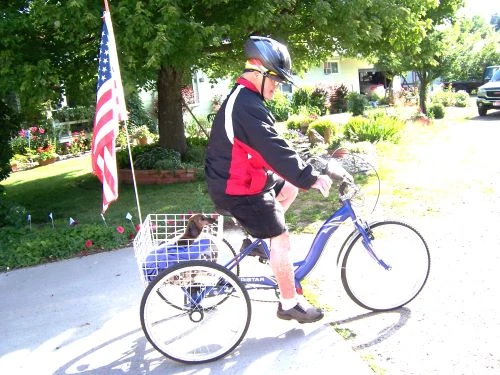
Barb was famous for wearing print cotton dresses, and knowing I sewed, one summer she asked me to put a hem in one for her. That went on through the years, until last summer when her family was gathering in North Dakota for family photos. She had been diabetic for years, and her weight fluctuated, but this last time she had a dramatic weight loss. For the upcoming event, she had bought new dresses months earlier, but since they were way too big now, she asked if I’d alter them.
When I took the finished dresses to her, I told her with all seriousness, that I had to draw a line for future alterations to no more than a size or two difference between the dresses and her actual size at the moment. Seamstresses will appreciate how these two big puffy dresses had started out 3X and were now size 10. My sewing room waste basket was full of fabric I had to cut away. I think she especially enjoyed it when I told her she was now smaller than me.
Actually, the trouble I had with her dresses was nothing compared to what Barb went through at times when she came to my aid. For a time, I cared for a 97-year-old woman in my home who would not use the walk-in shower in her own bathroom and insisted on bathing in a tub, as she had all of her life. When she was done, I could not safely lift her out of the tub. I called Barb, and together, we got Mildred out, dried her off and helped her dress.
Our last day together, Barb had insisted on taking me to the orthopedic surgeon to have a cast molded over my broken wrist. It was to be the last of numerous times that Barb took me to doctors or emergency rooms.
She was only a year older, but Barb had mothered me more than had my own mother.
For instance, one day she didn’t like the way I sounded on the phone and came right over, whisking me off to our ER out of fear that I had had a stroke. I remember Dr. Newhouse trying not to grin when he told us that I had just had a bizarre reaction to that pain medication.
Not wanting to repeat that, I took only low doses for my injuries from then on. One day, though, I was in agony, unable to sit anywhere without excruciating pain, so I called Barb. She asked about medication, and I told her I had already taken half a dozen pain pills spread over twelve hours. Thinking back on my earlier reaction to powerful meds, she raced me to the Sandpoint ER since ours was full of Covid patients. The doc immediately identified sciatica as the cause of my debilitating pain. When I told him the strength of my pain medication, he laughed and said that might have helped if I weighed only 50 pounds. He gave me a shot and sent me home with a 600 mg Tylenol prescription. Barb never mentioned that episode again. Bless her.
After breaking my wrist that January, when I could not drive, Barb would text, asking if I wanted to go to the grocery store. Then I’d treat us to a big breakfast at her favorite local restaurant, Chic ‘n Chop. It always took forever to make it in the door, then get to a table, finish our meal and back to her car. Whoever was leaving, eating or just coming in always had known Barb for many years. Whether from church, attending her sons’ and grandchildren’s games at school or the Post Offices where she worked, the many animal rescue programs she worked or while volunteering to help people navigate the legal system, she was recognized everywhere she went.
But somehow, through all of the interruptions, we managed heartfelt talks. Years before, we had mourned together during our neighbor Nancy Crab’s battle with cancer. When Nancy passed, we invited neighbors to celebrate her life in my garden. The last time Barb and I were at Chic ‘n Chop, we tearfully shared the pain of seeing our friend suffer so, and as we held hands across the table, we agreed that neither of us would put ourselves and our families through that.
Through all of those years, Barb and I had only one problem: we were on opposite poles, politically. This came to a head when former president Trump tried to reverse the 2020 election by force on January 6, 2021. I was in her kitchen, delivering a homemade treat when Barb said, “I still like him,” as videos of the mob he had sent to the capitol were playing on her TV. I blurted out, “You’re an intelligent person. How CAN you still support him?” We looked at one another in that moment, and as I backed out her kitchen door with sadness in my heart, not knowing what this would do to our relationship, I said, “We need to not discuss this anymore.”
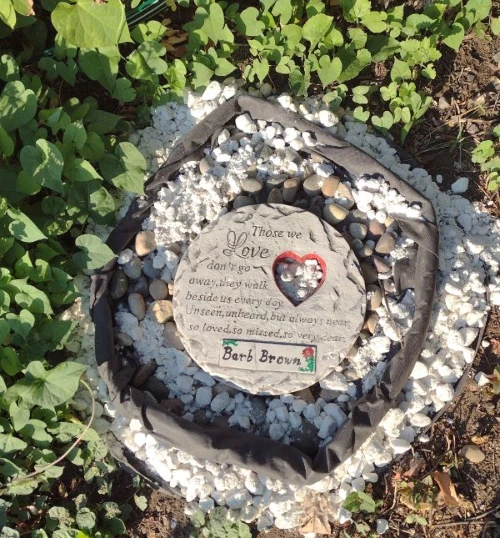
is where Clarice placed a memorial to Barb.
We did not approach one another for nearly a week after that. I’m not certain, but I think it was Barb who bridged our gap first. A member of her party, an elected county official, was a good, solid public servant but had just been primaried by a man who had lied to defeat him. Most of the public got the lies in the mail and read lies in social media. Barb knew him, and she was relieved when she said Tim Bertling had decided to be a write-in candidate in the upcoming general election. She had heard that a mutual friend would be dropping by our candidate’s signs (I also supported him), so she asked me for one and for a magnetic sign for her car.
The next thing I remember about that moment of political oneness was Barb pulling me in for a hug. Emboldened by that, a week later I told her that our very good state senator (another member of her party, and a Bonners Ferry High School graduate) had lost the primary to a man who also had lied about our beloved senator. Now, I told her, a man who had been in my party for years but was running against the liar as an Independent write-in, had embarked on that same difficult kind of campaign.
I asked if she would read some literature that I had for Steve Johnson and, if she agreed with his stance, I asked if I could put a sign in the little strip of garden that I planted and weeded and Barb watered. She agreed to the sign after reading Steve’s literature.
When I delivered her signs, I finally apologized for my loud outburst of incredulity weeks earlier. We agreed at that very moment that our friendship was too important ever to let politics intervene. Instead of not discussing politics, though, we also agreed to work together for good candidates and causes we could share.
Like many friends, Barb and I had drawn closer during the years from sharing shock, too. The worst such episode was when our chiropractor was arrested for the shooting murder of the new chiropractor in town.
The accused was the same chiropractor Rob and I saw for pain, and Dr. Dan Moore also saved my little dachshund Dinky’s life by administering acupuncture for paralysis of his back legs. I had tried unsuccessfully for weeks with numerous veterinarians. A Coeur d’Alene vet gave him water treatments, and a high school classmate’s husband in Medical Lake, Washington, also a vet, had me shave Dinky’s spine and apply a special compound he had prepared for a month. Still paralyzed after all of that, a specialist I took him to in Spokane said that an extremely expensive surgery would have only a 50% chance of success.
That’s when Barb told me that Dr. Moore had saved her spaniel, Mulligan, from a similar paralysis. After a couple of weeks of acupuncture and other treatments, one morning we smelled a skunk, and I cried when Dinky followed me from his bed through the open garage door. Barb and I hugged one another and we both cried when I told her the good news.
Now, as Barb told me the bad news about Dan, we held one another’s hands and cried as we shared our mutual disbelief. Like Barb, I had experienced Dan’s care and chiropractic skills for years and trusted him totally. Barb had made many friends on the police force and court system. The details that she learned in our small town made him the prime suspect, but it was unfathomable to both of us that this caring health practitioner could take someone’s life.
When Barb took me to Sandpoint that last day, I asked her take me to the East Bonner Library to renew my card. Our own library has been under siege by far-right extremists for several years.
The library in Sandpoint had been an oasis for me. Since Barb told me that day that she never even had been inside our neighboring town’s library, I explained that although we do not live in that county, there are many special services it could provide her. She really liked what she saw that afternoon and promised she would get a card for herself on her next trip to Sandpoint.
Then I treated her to lunch and we went to the favorite restaurant of her childhood. She was pleased that although she had not been there in years, things were the same as she remembered. We each had ordered Reuben sandwiches, and they were the best. She then treated me to sour cream lemon pie, another favorite of ours, at the Pie Hut.
At the orthopedic specialist’s earlier in the morning, she had filled out paperwork for me, and when she wrote my birth date, Barb looked me in the eyes and said, “That’s Lisa’s birthday.” That was just the beginning of the tearful moments we shared that day.
During one of the saddest, Barb told me that her husband was failing fast with dementia. She admitted that she had been spoiled by her mother and then had relied on Dick, who had done housework like cleaning, laundry and even cooking, while she traveled back and forth to work at the Canada border five days a week. Barb was visibly shaken about Dick’s health and said they might have to move to North Dakota with Jen’s and Rodney’s family.
I remember telling her how lucky she was to have had Dick’s help all of these years. Then I shared how much I envied her history of being doted on by her mother and then by her husband.
Over pie, we promised that we would help one another through this last phase of our lives. As she was about my age, I assumed that many special moments lay ahead in our friendship and many more moments for Barb to celebrate with her close-knit family.
We always hugged, but when she dropped me off, we kissed one another’s cheeks and expressed how much we loved each other. It was a seal on our pact to share future trials and tribulations.
Sadly, just three days later, after Rob and I left for the hospital in Coeur d’Alene to begin the replacement of my aortic valve, I received a call from Barb’s daughter-in-law, Jen, telling me that they had been unable to open Barb’s phone and after she and I spoke, she would be turning it off. She said Barb had suffered a moderate stroke here in Bonners Ferry and was taken by air to Sacred Heart Hospital in Spokane where she told everyone she did not want any heroics. Soon after speaking with family and medical staff, she suffered a massive stroke. Jen tearfully explained that Barb was being kept comfortable on “palliative care.” I knew from 12 years as a caregiver myself what that meant.
That night, in our hotel room following final tests for valve replacement, I called Jim Greenslit, and we talked about the last time the three of us had visited. Barb and I had been talking over coffee at the local Starbucks in Safeway when Jim had walked by and Barb called out to him. We had a long, three-way conversation that day about our shared memories and concerns.
Jim, who was a minister for much of his life and had been Rob’s and my first spiritual guide, shared with me that night about his 50 years with Barb and her family. I told him I could not imagine anyone else performing her funeral. He told me that he was so glad he had been able to go to the hospital and spend time with Barb.
The next day I learned that Barb had passed on while I was in the operating room. Barb had sent a room freshener with a faith message on it for the procedure scheduled in January, the one that had to be cancelled when I broke my wrist. The nurse let me keep it tucked under my gown during the operation. Barb’s tragic stroke meant that I had been unable to give her comfort memento like she had given me.
My Trans Aortic Valve Replacement was successful, and three days later I was home. Instead of physical pain, though, I was in emotional pain. Instead of waking from what I wanted to have been a nightmare, I was in a heart-breaking loss. We could not share what had happened to Barb in mutual recovery.
When another neighbor, Cindy Pereira, returned to work after visiting her daughter in Colombia, South America, someone informed her that her “neighbor” had died. Knowing that I was scheduled for aortic valve replacement, she thought it was me. Cindy called me after learning that Barb was the neighbor who had passed. Barb had been larger than life to so many of us, and Cindy and I shared how hard it was imagining life without her.
Cindy drove us to Barb’s services in Priest River the next Saturday. During the three-hour round trip, past two of Idaho’s biggest and most beautiful lakes, Pend Oreille and Priest, we reminisced about our favorite moments with Barb and consoled one another. Jim Greenslit, did perform Barb’s service at the funeral home, bringing everyone to warm, heart-felt laughter, finishing with a graveside service before a crowd that included former county commissioner Ron Smith and his wife, Evelyn; Barb’s former coworkers, and a few MAGA hats.
Because of the prevailing political sentiments in the crowd, Cindy and I decided not to attend the meal at a local restaurant. A permanent sign at the cemetery exit with flag motif and the Republican elephant affirmed our decision. It included the words, “Joe Biden & the Democrats are destroying our country. Wake up America! Before its to (sic) late.”
Cindy and I had become accustomed to such signs, including far worse nearby garages and fences. We shared the realization in that moment that our neighborhood also had lost one more hope for bridging its opposite poles for the future.
Over the next few days, we put up signs on our properties from the local Human Rights Task Force.
- Building Bridges
- Neighbor to Neighbor
- CommUNITY
- Kindness Matters
I had prayed last year that God would teach me how to talk with people who are poles apart from me, politically and religiously, and as we know, those values are often intertwined. I carry in my heart the times Barb and I enjoyed, she with her enduring support of Trump and me with my Democratic Party ideals.
